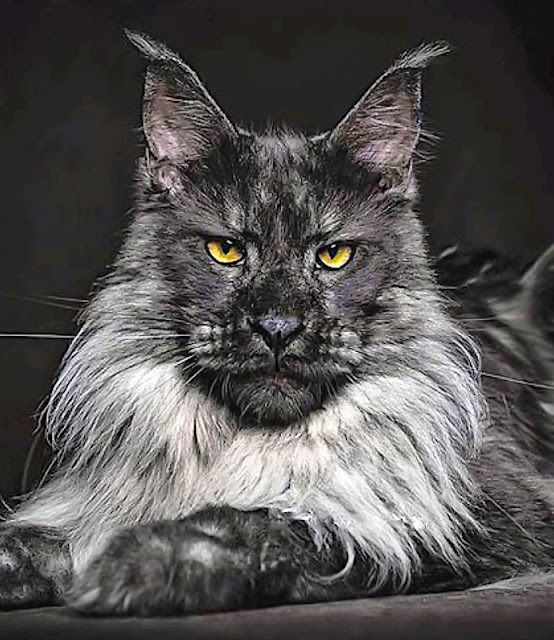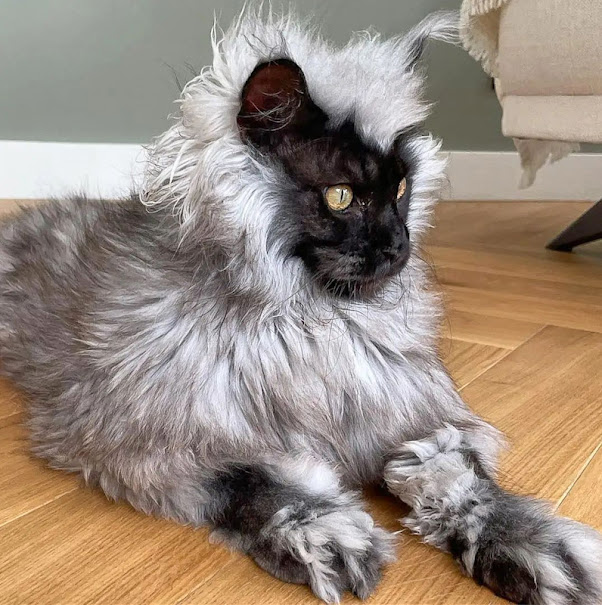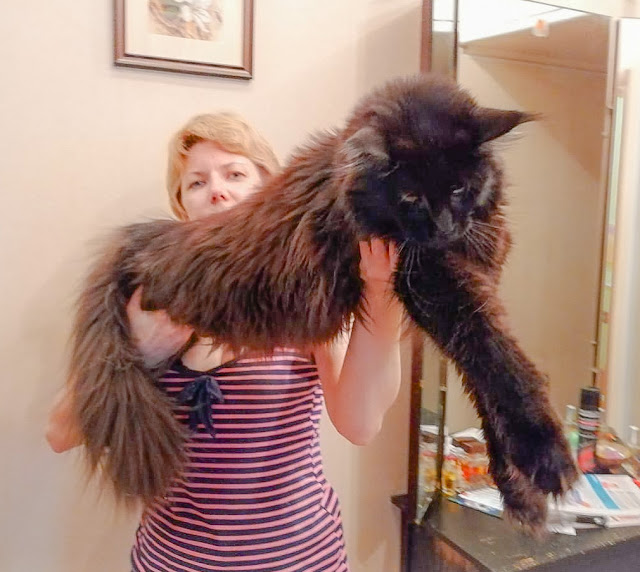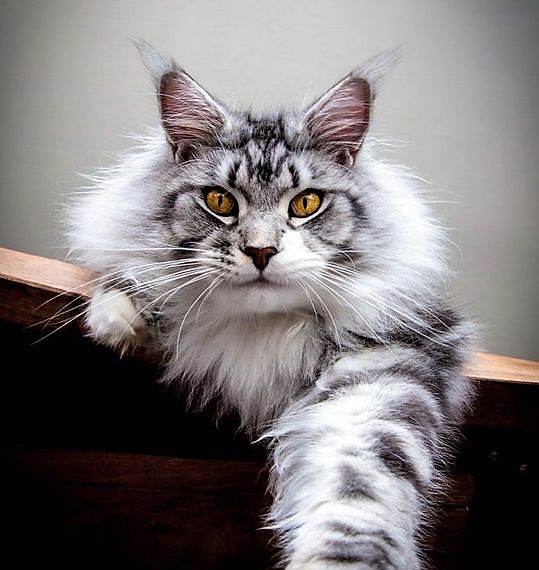Physical attributes that might indicate that your Maine Coon cat is predisposed to HCM
As a Maine Coon cat caregiver you almost certainly know that the breed is genetically predisposed to developing hypertrophic cardiomyopathy (HCM). In my view, this disease, which can start early in life, is the reason why Maine coon cats have, on average, a shorter lifespan than they should otherwise have. One study says that their lifespan, on average, is 11 years.
It's a great shame that through suboptimal breeding, this majestic cat breed is so predisposed to this serious disease.
 |
| Omar an overweight Maine Coon cat who's probably predisposed to HCM. Image: Screenshot from a YouTube video. Omar lives in Australia. |
The study that I'm referring to observed certain anatomical characteristics of Maine Coon cats that were predisposed to HCM. They decided this because the Maine Coon cats in their cohort (group) of 63 cats that had HCM commonly had these anatomical characteristics.
They are as follows:
Older: This is to be expected. Older Maine Coon cats are more likely to have HCM. Nothing very original in that.
Heavier: this is saying that if a Maine Coon cat is a little bit overweight or even obese, he or she is more likely to develop HCM. That's my interpretation. Obesity in humans is the precursor of many diseases some of which are serious such as kidney and heart failure. Cat anatomy is very similar to human anatomy.
Longer humeri: Maine Coon cats with longer humeri are more likely to have HCM than other Maine Coon cats. The humeri is the bone of the upper forelimb which forms joints at the shoulder and the elbow.
Body condition score (BCS): if a Maine Coon cat has a higher abdominal circumference and BCS, he or she is more likely to have developed HCM according to the study. This is a further parameter in the obesity characteristic mentioned above.
Serum glucose and IGF-1: on a technical level, cats with HCM in the study I refer to also had higher serum glucose and IGF-1 concentrations.
HOMA: this is 'homeostasis model assessment'. This measures and evaluates pancreatic beta cell function and insulin resistance from basal glucose and insulin. This once again is very technical so it's not really meant to be understood by your typical reader.
Perhaps the important aspect of this short post is that there are some appearance pointers to a Maine Coon cat which could lead their owner to understand that there Maine Coon cat is more predisposed to HCM than other Maine Coon cats.
If you want to read the full study then please click on this link. The study is called: "Body size and metabolic differences in Maine Coon cats with and without hypertrophic cardiomyopathy."
Note: I am not a vet. I am a good researcher and I know cats very well and have a good understanding of cat illnesses and treatments.
---------










Comments
Post a Comment
Please share your Maine Coon experiences.